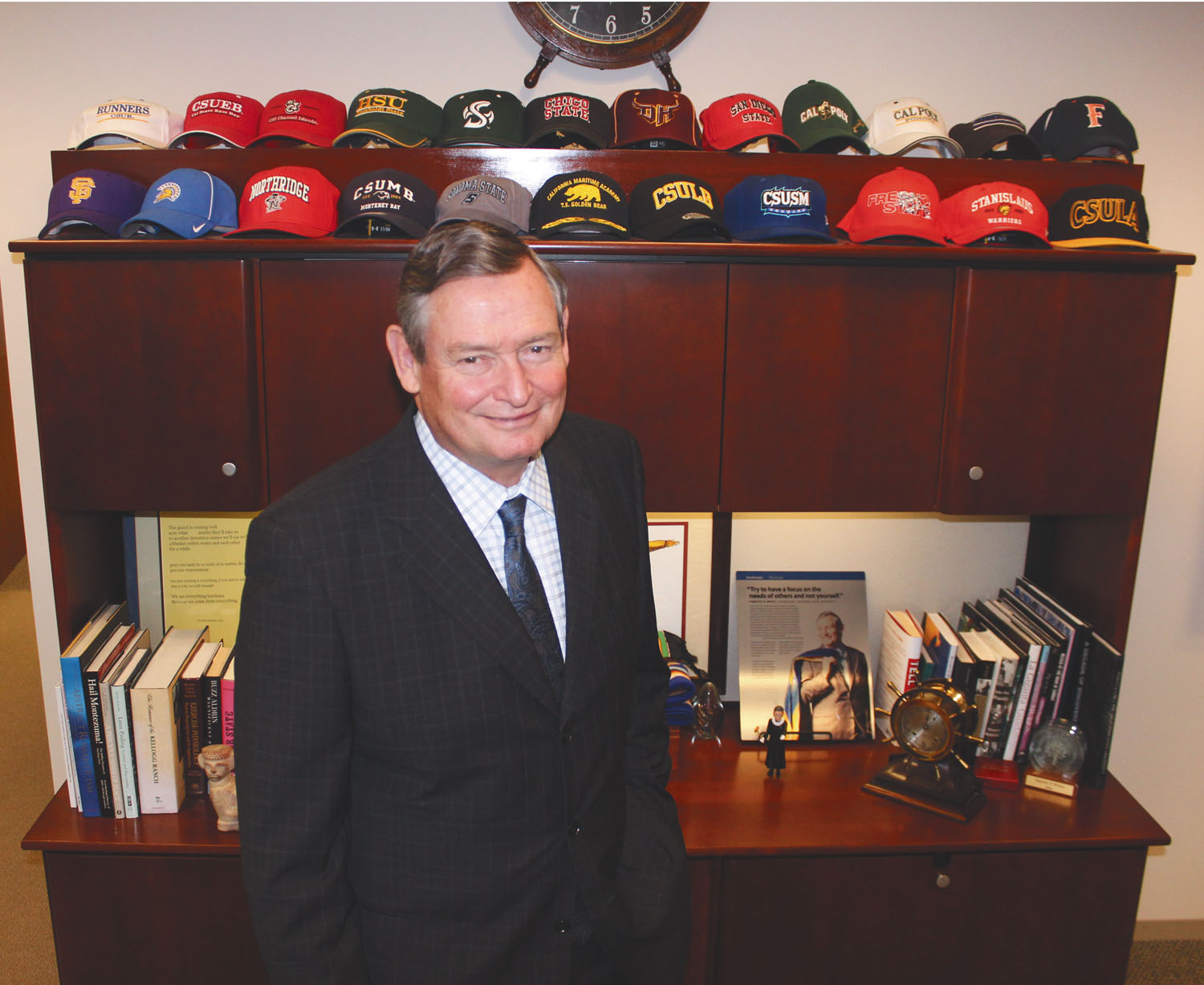
In the current academic year, almost half a million students are enrolled across the California State University’s (CSU) 23 campuses. With its operations spanning the state from Humboldt in the north to San Diego in the south, CSU’s most successful venture this year took place in Sacramento. California’s new governor, Gavin Newsom, proposed his budget for the year on January 10, which included a significant increase in allocations to the university’s funds.
“The governor’s proposed budget has provided a chance to grow our university across the 23 campuses,” CSU Chancellor Timothy White told the Business Journal during an interview at CSU’s headquarters in Downtown Long Beach. Newsom has proposed a $300 million increase in permanent funding as well as two one-time grants of $247 million for infrastructure repairs and improvements, and $15 million to provide food and housing assistance to low-income students.
In addition to a tuition freeze stipulated in the governor’s proposal, White said the university will continue to invest in its Graduation Initiative 2025, which includes several programs aimed at increasing completion rates and ensuring more students graduate on schedule. “It’s creating more opportunity for every one of our students -around their reality -to earn their degree sooner and go on to grad school, professional school or into the workplace,” White explained.
The university chancellor said it was crucial for the state to invest in education that is accessible and beneficial to its diverse population. “By 2030, the state’s going to be about a million [academic] degrees short of what it needs to support the economy,” White noted. That projection, which was published in a report prepared by the Public Policy Institute of California, should serve as an affirmation that investments into the state’s university system were crucial for its continued economic success, White explained. “We’re the seed corn of tomorrow’s economy, tomorrow’s society.”
In return, the CSU chancellor made a pledge to taxpayers that the university would produce a return on their investment. “Accountability is a big part of this, and it’s absolutely appropriate. I want us to be accountable,” he said.
The university’s freshman graduation rates have increased continuously over the past three years. In 2018, 25.5% of CSU freshmen graduated within four years, compared to 20.7% in 2016. In the same year, 61.2% of students graduated after six years of school, compared to 59.3% in 2016. These numbers put the university on par with the goals of its graduation initiative. “For the dollars the state is putting into our operating budget, there’s a remarkable return, financially and socially,” White said.
To ensure that those returns remain sustainable, the university is planning to invest in its aging infrastructure and expand on-campus residences to alleviate the effects of elevated housing costs for students in tight rental markets like the Bay Area, where the school has four campuses. To fund further infrastructure improvements, the state would have to take up additional bonds, White said, financing what he called a “jobs-for-jobs” program: construction jobs in the short term, more job-ready graduates in the long term. “We’re going to be pushing hard on this one,” he promised.
While statewide politics have played out in the university’s favor recently, White expressed concerns about political developments at the national level. The CSU chancellor strongly opposes U.S. Education Secretary Betsy DeVos’ planned changes to the Title IX statute, a federal law that sets guidelines for the investigation of sexual assault and harassment allegations on and around university campuses.
“We’re deeply concerned,” White said. “We’re committed to a fair process to those who have been accused of sexual assault, but the DeVos proposal just misses the mark dramatically.” In late January, White submitted an official comment to the secretary’s office, outlining the university’s opposition to a number of planned policy changes, which include narrowing the definition of sexual assault and giving alleged perpetrators an opportunity to cross-examine their accusers. “Some of the things that are in the draft they’re proposing are draconian and inappropriate,” White noted.
Changes in immigration policy are another point of concern for White. “It’s been very, very personal for many of our students as well as many of our employees,” the chancellor said, pointing to the uncertainty faced by undocumented students or students whose family members lack legal immigration status. “It gets in the way of their ability to concentrate on their studies.”
Under the California Dream Act of 2011, undocumented students are able to apply for scholarship and financial aid, information the university shares through its student services department.
“The other point we’re making to our students is: earn your degree. Because, no matter what happens in the world of politics, nobody can take that degree or that knowledge or that skill and experience away from you,” White said.
